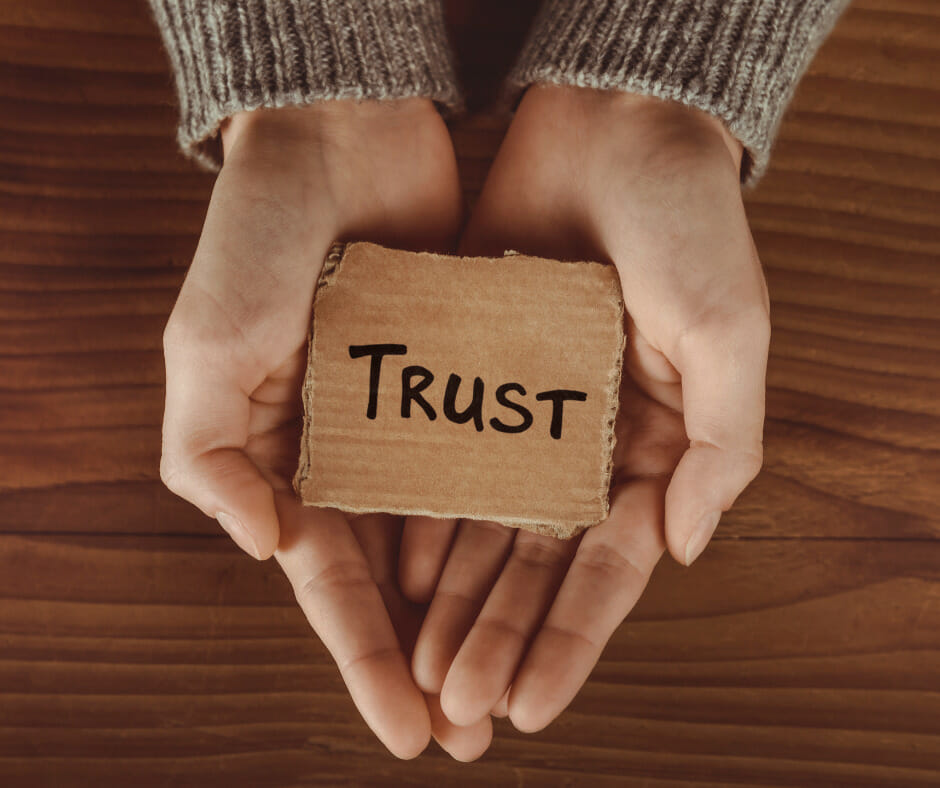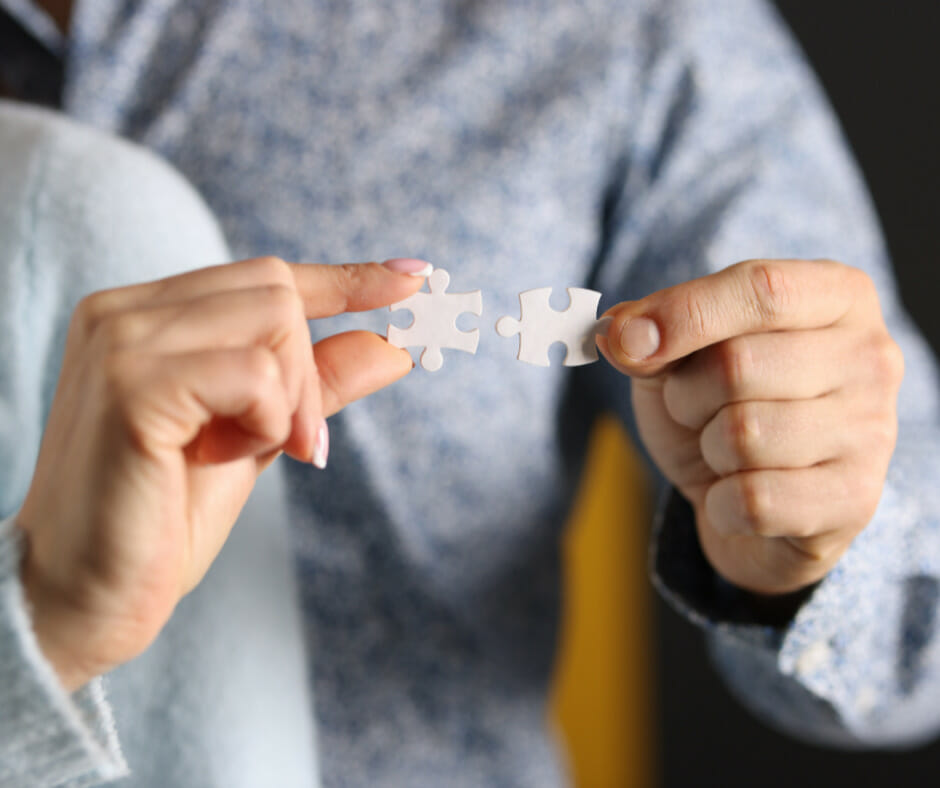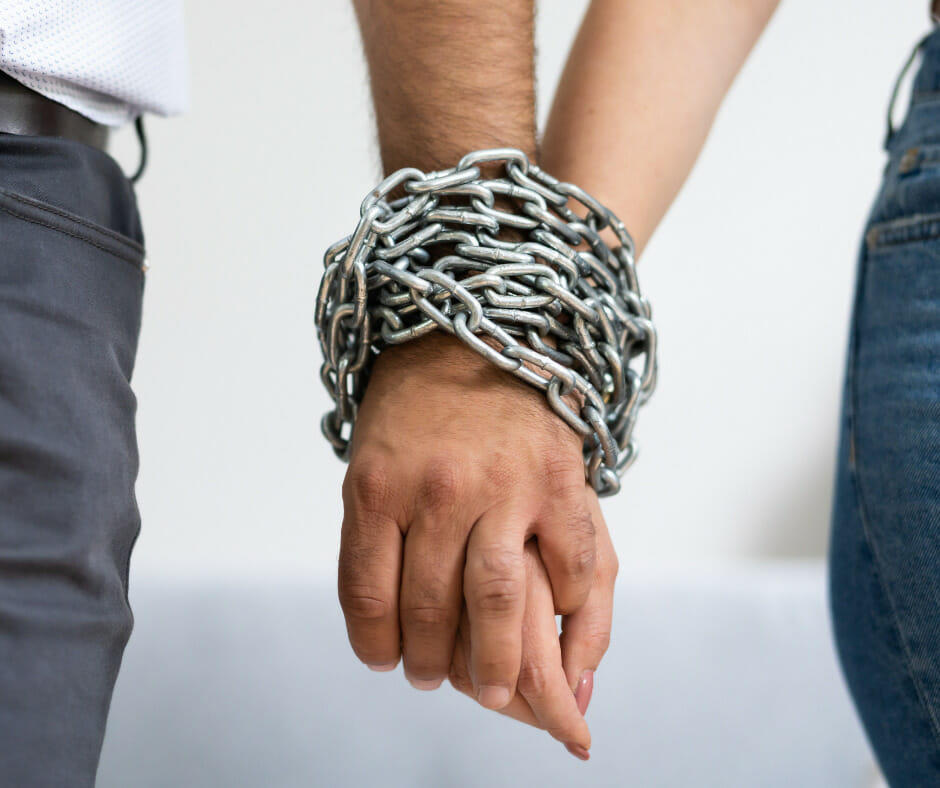Being in a relationship with an addict in recovery can be challenging and requires a unique set of considerations. Addiction not only affects the individual battling the addiction but also has far-reaching impacts on their loved ones. Rebuilding trust and connection is a crucial aspect of navigating the recovery journey together.
Trust is the foundation of any healthy relationship, and its erosion is a common consequence of addiction. Understanding the impact of addiction on trust is essential for both the addict and their partner. Addictive behaviors can lead to broken promises, lies, and betrayal, which can make trust incredibly fragile. Rebuilding trust is crucial for the healing and growth of the relationship.
In addition to trust, rebuilding connection is vital for the well-being of the relationship. Open and honest communication plays a crucial role in establishing a safe space for expressing emotions and addressing concerns. Supporting each other’s emotional needs helps create a sense of security and understanding. Establishing boundaries and setting expectations can provide structure and clarity as both individuals navigate the recovery process.
Being in a relationship with an addict in recovery comes with its own set of challenges. Triggers and relapses are common hurdles that require understanding, patience, and supportive measures. Managing codependency and enabling behaviors is crucial to ensure that both partners prioritize their well-being.
Seeking professional help is highly recommended to support the recovery journey. Individual counseling for the addict and their partner can provide a safe space for personal growth and healing. Participating in couples therapy can assist in rebuilding trust, improving communication, and strengthening the bond. Joining support groups and engaging with the recovery community can also offer guidance and a sense of belonging.
While supporting the recovery journey of your partner, it is essential to prioritize self-care to prevent burnout. Implementing self-care strategies, such as practicing mindfulness, engaging in enjoyable activities, and seeking emotional support for yourself, is crucial. Setting realistic expectations and practicing patience are essential elements of maintaining your own well-being and fostering a healthy relationship.
Navigating a relationship with an addict in recovery requires commitment, understanding, and a shared dedication to growth. With effective communication, support, and self-care, it is possible to rebuild trust, strengthen the connection, and create a healthy and fulfilling relationship on the path to recovery.

The Importance of Rebuilding Trust
Rebuilding trust is essential when it comes to living with someone with an addiction. Understanding how addiction impacts trust and recognizing the importance of trust in the recovery process are crucial aspects that we’ll delve into in this section. Trust is the foundation on which healthy relationships are built, and we’ll explore its significance in rebuilding connections after the challenges of addiction. Let’s dive in and discover the transformative power of rebuilding trust in recovery.
Understanding the Impact of Addiction on Trust
Understanding the impact of addiction on trust is essential in a relationship. Addiction significantly affects trust by eroding it and creating uncertainty. Lies, deception, and broken promises become a regular part of the addicted individual’s behavior, leading to a complete breakdown of trust. Trust plays a crucial role in the recovery process and is vital for rebuilding a successful relationship with a recovering addict. Without trust, it becomes challenging to establish a strong emotional connection and move forward together.
The behavior of the addict during active addiction can cause immense pain to their partner and severely damage trust. Rebuilding trust requires open and honest communication, transparency, and consistent actions. The addict must take responsibility for their past actions and demonstrate genuine change in their behavior.
Both the addict and their partner need to understand the significant impact addiction has on trust. The process of rebuilding trust takes time and requires realistic expectations. Providing space for the healing process is crucial. The addict must be willing to put effort into regaining their partner’s trust and fully comprehend the consequences of their past actions.
Rebuilding trust in a relationship affected by addiction is a difficult and ongoing process. It demands patience, forgiveness, and a solid commitment to change. However, with time, effort, and a strong support system, repairing the damaged trust and creating a healthier relationship is possible.
Recognizing the Need for Trust in Recovery
Recognizing the need for trust in recovery is crucial for the addict and their partner. Trust plays a vital role in rebuilding and maintaining a strong relationship after addiction. Here are some important points to consider:
1. Trust as a crucial factor: Recognizing the need for trust is essential in rebuilding and maintaining a strong relationship after addiction. It provides security, reliability, and emotional support for both individuals.
2. Rebuilding broken trust: Addiction often leads to broken trust due to lies, deceit, and broken promises. Acknowledging the damage caused and committing to rebuilding trust is necessary.
3. Trust as a motivator: Trust is important for the addict as well. Knowing that their partner has faith in their recovery journey can serve as a motivation to stay committed to sobriety.
4. Building transparency: Open and honest communication is crucial for building trust. Being transparent about feelings, struggles, and progress creates a safe and trusting environment.
5. Patience and understanding: The recovery journey is challenging and requires patience and understanding from both individuals. Recognizing the need for trust means giving each other time and space to heal and grow.
6. Seeking professional help: Recognizing the need for trust also involves seeking professional help. Individual counseling for the addict and their partner can provide valuable guidance and support in rebuilding trust.
By recognizing the need for trust in recovery, both the addict and their partner can work together to strengthen their relationship and support each other on their journey towards a healthier, happier future.

Rebuilding Connection in the Relationship
When it comes to rebuilding a connection in a relationship with an addict in recovery, there are key strategies that can help us navigate this challenging journey. In this section, we’ll uncover powerful tools that can strengthen the bond between partners. From open and honest communication to supporting each other’s emotional needs, we’ll explore practical tips that foster trust and nurture the relationship. Additionally, we’ll delve into the importance of establishing boundaries and setting expectations to create a healthy and secure space for both individuals. Get ready to restore and revitalize your connection in meaningful ways.
Open and Honest Communication
Open and honest communication is crucial for a relationship with an addict in recovery. It allows both partners to express their thoughts, concerns, and emotions in a safe space. Here are some important aspects to consider:
1. Active listening: Pay attention to your partner’s words, feelings, and nonverbal cues. Show empathy and understanding by validating their experiences. This builds trust and strengthens the connection between partners.
2. Non-judgmental attitude: Avoid criticizing or blaming your partner. Instead, focus on understanding their perspective and offering support. This promotes a positive and non-confrontational environment for open communication.
3. Transparency: Be open about your feelings, fears, and expectations. Share your concerns honestly and respectfully. This enables both partners to openly address issues and find solutions together.
4. Clear and assertive communication: Use “I” statements to express your thoughts and feelings. This avoids blame and promotes personal responsibility. Be clear about your needs, boundaries, and expectations, ensuring understanding and respect from both partners.
5. Problem-solving: Collaborate with your partner to find solutions to challenges during the recovery journey. Brainstorm together, explore different options, and be open to compromise. Effective problem-solving strengthens the connection and fosters growth in the relationship.
Open and honest communication is not always easy, especially when discussing sensitive topics related to addiction. However, it plays a crucial role in rebuilding trust and fostering a healthy relationship. By prioritizing open communication, both partners can navigate the recovery journey together in a supportive and understanding manner.
Sarah and Mark, a couple in a relationship with an addict in recovery, understood the importance of open and honest communication. They created a safe space for sharing their feelings and concerns without judgment. Through active listening, they addressed triggers and challenges, ensuring both partners felt heard and supported. Their open communication paved the way for rebuilding trust and connection, ultimately strengthening their relationship. By practicing transparency and problem-solving, Sarah and Mark navigated the recovery journey together, emerging as a stronger and more resilient couple.
Supporting Each Other’s Emotional Needs
Supporting each other’s emotional needs is crucial in a relationship with an addict in recovery. Both partners require emotional support during this challenging journey.
- Actively listening to each other’s feelings and concerns fosters understanding and empathy. Creating a safe space for open communication allows both partners to express their emotions without judgment.
- Showing empathy toward each other’s struggles helps build a stronger connection. Understanding and acknowledging each other’s pain creates a supportive environment for healing.
- Validating each other’s emotions maintains trust and connection. Acknowledge and affirm the validity of your partner’s feelings, even if you may not fully understand them.
- Providing encouragement and celebrating small victories boosts confidence and motivation. It promotes a positive mindset and helps both partners stay committed to the recovery process. Recovery takes time.
- Be patient with each other’s progress and setbacks. Healing is not always linear, and setbacks are normal.
- Supporting emotional needs involves self-care. Encourage your partner to engage in activities that promote their well-being, and prioritize your own self-care as well.
By actively supporting each other’s emotional needs, partners can create a strong foundation of trust, understanding, and resilience. Together, they can navigate the challenges of addiction recovery.
Establishing Boundaries and Setting Expectations
Establishing clear boundaries and setting expectations is crucial in a relationship with an addict in recovery. In Building trust and recovery capital by Topor et al., it was outlined that recovery has been characterized as a deeply personal journey, yet it is also intricately intertwined with social interactions and contextual elements involving other individuals. It creates a safe and supportive environment for both partners to rebuild trust and maintain their well-being.
- Open and honest communication is essential when establishing boundaries and setting expectations. Both partners should openly discuss their needs, concerns, and boundaries to prevent misunderstandings or resentment.
- Boundaries help establish limits and define what is acceptable in the relationship. It is important to set boundaries regarding substance use, triggers, and harmful behaviors. Both partners need to respect these boundaries.
- Defining expectations helps avoid misunderstandings and disappointment. Discuss responsibilities, goals, and priorities to ensure mutual understanding. This includes expectations about sobriety, support, and involvement in recovery activities.
By establishing boundaries and setting expectations, both partners can create a supportive environment that promotes trust and recovery. Regularly reevaluate and adjust boundaries and expectations as the recovery process evolves.
Remember, each relationship is unique, so work together as a couple to find what works best for both partners.

Challenges Faced in a Relationship with an Addict in Recovery
Navigating a relationship with an addict in recovery brings its own set of challenges. In this section, we’ll uncover the obstacles that arise when rebuilding trust and connection. From managing triggers and relapses to addressing codependency and enabling behaviors, we’ll explore how these factors impact the journey toward a healthier and more resilient partnership. Prepare to dive into the realities faced when supporting a loved one on their path to recovery, and discover strategies to overcome these hurdles together.
Dealing with Triggers and Relapses
Dealing with triggers and relapses is a significant challenge in a relationship with a recovering addict. It necessitates active participation and support from both partners. Here are strategies to effectively navigate this situation:
1. Recognize triggers: It is important to identify situations, people, or emotions that may trigger the urge to use substances. This can include stress, social events, or encountering old acquaintances associated with addiction.
2. Open communication: Foster an environment of safety and non-judgment for communication between partners. Encourage the recovering addict to freely express their triggers, thoughts, and emotions, and actively listen to them.
3. Develop coping mechanisms: Explore and develop healthy coping mechanisms to effectively deal with triggers and prevent relapses. Mindfulness, engaging in physical activities, or pursuing hobbies as positive distractions can be effective avenues.
4. Establish a support structure: It is crucial to establish a support system consisting of friends, family, or support groups who can provide encouragement and guidance during challenging times. The family systems theory, for example, dives deep into dynamics and healing together.
5. Create a relapse prevention plan: Collaborate with the recovering addict to formulate a plan that outlines steps to take when faced with triggers. This plan should include engaging in alternative activities, practicing self-care, and having emergency contacts for additional support.
6. Celebrate milestones: It is important to acknowledge and celebrate both small and significant progress to boost confidence and motivation.
7. Seek professional help: In certain cases, seeking professional help such as counseling or support groups may be beneficial for both partners.
Dealing with triggers and relapses requires continuous effort and understanding. By working together as a team, the partners can effectively navigate these challenges and provide support for each other on the journey to recovery.
Managing Codependency and Enabling Behaviors
Managing codependency and enabling behaviors is essential in a relationship with an addict in recovery. These behaviors can impede the addict’s progress and create an unhealthy dynamic. Here are steps to effectively manage codependency and enabling behaviors:
- Recognize enabling behaviors: It is crucial to identify behaviors such as making excuses, covering up actions, or shouldering responsibility for problems. Acknowledging these behaviors is vital to preventing their persistence.
- Set boundaries: Establishing clear boundaries in the relationship and communicating what behaviors are acceptable is imperative. Consistently sticking to these boundaries fosters a healthy environment.
- Focus on self-care: Prioritizing your well-being by engaging in activities you enjoy, seeking support from friends and family, and setting realistic expectations is crucial.
- Encourage independence: Supporting the addict in their recovery involves allowing them to take responsibility for their actions and decisions instead of doing things for them.
- Seek professional help: Considering therapy or counseling for yourself and as a couple can provide guidance on managing codependency and enabling behaviors, as well as help in building a healthy relationship.
- Join support groups: Engaging with support groups for partners of addicts in recovery provides a safe space to share experiences, gain insights, and receive support from others who have been through similar situations.
By actively managing codependency and enabling behaviors, you can create a foundation for a healthier and more supportive relationship with your partner in recovery.

Seeking and Providing Support in the Recovery Journey
In the journey of recovery from addiction, seeking and providing support is crucial for rebuilding trust and connection. From individual counseling for both the addict and their partner to participating in couples therapy, and joining support groups and community, this section explores the various avenues available for support. Discover the power of these resources in healing and strengthening relationships affected by addiction, and learn how they can play a key role in the recovery journey.
Individual Counseling for the Addict and Partner
Individual counseling is crucial for both the addict and their partner throughout the recovery process. This form of counseling creates a secure and supportive environment where each individual can address their unique challenges and emotions.
For the addict, individual counseling offers the opportunity to delve into the underlying causes of their addiction and devise strategies to cope with cravings, triggers, and potential relapses. It also promotes self-awareness, improves overall well-being, and increases the likelihood of achieving long-term recovery.
Similarly, the partner of an addict can greatly benefit from individual counseling. It provides a space for them to process their own emotions, including anger, resentment, and fear, which may have accumulated during the addiction. Additionally, the counselor can assist in understanding codependency patterns, managing enabling behaviors, and establishing healthy boundaries within the relationship.
In individual counseling sessions, both the addict and their partner can acquire valuable skills for effective communication and problem-solving. They can explore healthier ways to express their needs, concerns, and expectations, fostering a deeper understanding and connection between them.
It is important to acknowledge that the frequency and duration of individual counseling may vary depending on the specific needs of the addict and their partner. The counselor will collaborate with each individual to establish goals and develop personalized treatment plans.
Participating in Couples Therapy
Participating in couples therapy can rebuild trust and connection in a relationship with an addict in recovery. Couples therapy provides a safe and supportive environment for partners to address challenges and work towards healing together. For instance, “behavioral couples therapy (BCT), a treatment approach for married or cohabiting drug abusers and their partners, attempts to reduce substance abuse directly and through restructuring the dysfunctional couple interactions that frequently help sustain it” (Behavioral Couples Therapy for Substance Abuse: Rationale, Methods, and Findings, Fals-Stewart et al., 2004.)
In couples therapy, both partners actively participate. The therapist facilitates open and honest communication, allowing each partner to express their feelings, concerns, and needs. Enhancing communication skills helps couples understand and empathize with each other, leading to deeper connection and trust.
Couples therapy also helps establish boundaries and set expectations. Through guided discussions, couples can address issues related to trust, accountability, and healthy boundaries. The therapist assists in developing a plan for managing triggers and relapses, as well as codependency and enabling behaviors that may have developed during the addiction.
By participating in couples therapy, partners learn coping strategies and gain support from each other during the recovery journey. The therapist may provide resources and guidance on individual counseling for both the addict and the partner, as well as the importance of joining support groups and communities.
It’s important to remember that couples therapy is not a quick fix and requires commitment from both partners. However, participating in couples therapy significantly enhances the rebuilding process, strengthens the relationship, and promotes long-term recovery.
John and Sarah decided to participate in couples therapy after John’s recovery from addiction. Through therapy, they openly communicated their feelings and concerns, addressing the impact of addiction on their relationship. With their therapist’s guidance, they set boundaries and established expectations for their recovery journey. Therapy provided them with tools to manage triggers and relapses, as well as navigate their codependency patterns. Couples therapy allowed them to reconnect and rebuild the trust that was damaged during John’s addiction. By actively engaging in therapy and supporting each other, John and Sarah strengthened their relationship and continued their journey of healing together.
Joining Support Groups and Community
Joining support groups and community is vital for partners of addicts in recovery. These groups provide a secure and empathetic environment where individuals can connect with others who have faced similar challenges. Being a part of a support group enables partners to share their experiences, gain valuable insights, and receive support from individuals who genuinely understand their struggles.
Support groups offer numerous advantages to partners of addicts. They provide a sense of belonging and alleviate feelings of isolation. Connecting with others who have undergone similar experiences helps partners realize that they are not alone in their journey. This sense of community can enhance their overall well-being and nurture hope for the future.
Furthermore, support groups also provide practical advice and coping strategies. Members can share their own techniques for dealing with challenges, offering partners new ideas and fresh perspectives. They can learn from individuals who have successfully navigated the recovery process and gain insights on how to rebuild trust and connection in their relationships.
Moreover, support groups offer a space to express emotions and process feelings related to being in a relationship with an addict in recovery. Partners can find solace in sharing their concerns, fears, and achievements with others who can relate. These groups cultivate emotional well-being and facilitate the healing process.
To locate support groups and community resources, partners can reach out to local addiction recovery centers like Lantana Recovery, and counseling services, or search online for specific groups tailored to their needs. Active participation and engagement with others are crucial in order to maximize the benefits of the support system.

Taking Care of Yourself as the Partner of an Addict in Recovery
Being the partner of an addict in recovery can be challenging, but it’s crucial to prioritize your own well-being. In this section, we’ll explore essential self-care strategies that can help prevent burnout and restore your own sense of balance. We’ll also discuss the importance of setting realistic expectations and practicing patience as you navigate this journey with your loved one. Remember, by taking care of yourself, you can become a strong pillar of support for your partner’s recovery.
Self-Care Strategies to Prevent Burnout
Self-care strategies are essential for partners of recovering addicts in order to prevent burnout and maintain their well-being. Incorporating these strategies into your daily life can have a significant impact on your overall health. Here are some effective self-care strategies to consider:
1. Establish clear personal boundaries and openly communicate them with your partner. This will help ensure that you have the necessary time, energy, and emotional capacity to take care of yourself while supporting your partner’s recovery process.
2. Practice self-compassion and be kind and understanding towards yourself. It’s important to accept that you may not have all the answers or be able to fix everything. Prioritize your own needs and make time for self-care activities that bring you joy and relaxation.
3. Seek support from others who understand what you’re going through. Joining support groups for partners of recovering addicts can provide you with a safe space to share your experiences and gain valuable insights. Additionally, consider seeking individual counseling to navigate your own emotions and challenges.
4. Take regular breaks to rest and relax. Engage in activities that you enjoy, such as hobbies, exercise, or pursuing personal interests. It’s crucial to allocate time for rejuvenation and recharge.
5. Practice stress management techniques to cope with the challenges you may face. Deep breathing exercises, meditation, yoga, or journaling are all effective ways to reduce stress and anxiety. These techniques can be used whenever you feel overwhelmed or anxious.
6. Lead a healthy lifestyle by taking care of your physical health. This includes eating nutritious meals, exercising regularly, and prioritizing sleep. These practices can enhance your energy levels and overall well-being.
7. Spend time reflecting on your emotions and needs. Consider using journaling as a useful tool for self-reflection and gaining clarity. Taking time to understand and address your own feelings is an important part of self-care.
8. Don’t hesitate to ask for help when needed. Reach out to friends, family, or professionals who can offer support and assistance. Remember, you are not alone in this journey, and it’s okay to lean on others for support. For instance, a study titled Attachment, Addiction, and Recovery by Zitzmand & Butler has found that conjoint marital therapy is suggested as a valuable element in addressing compulsive pornography consumption.
By incorporating these self-care strategies into your life, you can prevent burnout and maintain your well-being as a partner of a recovering addict. Remember to prioritize your own needs and take care of yourself alongside supporting your partner’s recovery journey.
Setting Realistic Expectations and Practicing Patience
Here are steps to follow when setting realistic expectations and practicing patience in a relationship with an addict in recovery:
1. Understand addiction and the recovery process. Recognize that recovery is a journey with ups and downs, and it takes time for the person to rebuild their life.
2. Educate yourself about challenges and triggers that may arise during the recovery process. Being aware of these can help you set realistic expectations and respond with patience when difficulties arise.
3. Communicate openly and honestly with your partner about your feelings, concerns, and expectations. Express support and understanding while setting boundaries to protect your well-being.
4. Focus on progress rather than perfection. Celebrate small victories and milestones achieved along the way. Acknowledge your partner’s efforts toward recovery.
5. Practice empathy and try to see things from your partner’s perspective. Remember that addiction is a complex disease and setbacks or relapses may occur. Respond with compassion and understanding.
6. Take care of your own well-being. Engage in self-care activities that recharge you emotionally, mentally, and physically. This helps you maintain patience and resilience during challenging times.
7. Seek support from professionals or support groups. Therapy or counseling can provide guidance and tools for navigating the challenges of being in a relationship with an addict in recovery. Connecting with others who have similar experiences can provide validation and support.
Setting realistic expectations and practicing patience requires understanding, empathy, and self-care. By following these steps, you can navigate the complexities of a relationship with an addict in recovery and create a healthy and supportive environment.
Frequently Asked Questions
How can an addict in recovery rebuild trust with their family?
To rebuild trust with family after addiction, it is important for the recovering addict to take responsibility for their past mistakes and demonstrate a commitment to change. They can prove themselves by consistently keeping their word, fulfilling obligations, and remaining accountable for their actions that support their recovery. Open and honest communication should be prioritized, and boundaries should be respected. It is crucial to focus on oneself, address any victim mentality, and work on rebuilding self-esteem. Patience, dedication, and family support are key in the process.
How can an addict in recovery rebuild trust in a romantic relationship?
Rebuilding trust in a relationship with a spouse or partner requires honesty, setting ground rules, and proving one’s commitment to an open and honest relationship. The recovering addict should take responsibility for their past actions and make a sincere apology. It is important to avoid seeking approval or expecting a reward and instead focus on doing the right thing consistently. Consistent effort, attending meetings or therapy, and adhering to a healthy routine can help rebuild trust over time. Seeking professional help can also be beneficial in navigating the complexities of rebuilding trust in a marriage.
How can an addict in recovery rebuild trust in friendships?
Rebuilding trust in friendships requires honesty, taking responsibility for past actions, acknowledging wrongdoings, apologizing, and making a commitment to positive changes. The recovering addict should be empathetic towards their friends’ feelings and avoid engaging in gossip. It is important to give friends space if needed and be patient with the rebuilding process. Initiating contact with friends, being honest about intentions and progress, and continuing with meetings or counseling sessions can help rebuild trust in friendships.
Can an addict in recovery rebuild trust in themselves?
Yes, an addict in recovery can rebuild trust in themselves. It is a challenging process that requires a support system to navigate difficult times. They can rebuild trust in themselves by sticking to honesty and making a commitment to their own recovery. By avoiding behaviors that negatively affect their progress, taking responsibility for their actions, and working towards healthier habits, they can regain trust in themselves and make positive decisions moving forward.
Can an addict in recovery repair damaged relationships with family members?
Yes, it is possible for an addict in recovery to repair damaged relationships with family members. However, it takes time, patience, and dedication. The recovering addict should take responsibility for their past actions, prove their commitment to change, and make up for the damage caused by their substance abuse issue. Family support is crucial in the recovery process, and expressing gratitude can reinforce positive changes. Seeking professional help from a drug and alcohol treatment program can also provide guidance in repairing the relationship with the family.
What are some healthy communication methods for rebuilding trust in relationships?
Healthy communication methods are essential for rebuilding trust in relationships. It is important to be open and honest, express emotions and concerns, and actively listen to the other person. Avoiding blame and criticism, using “I” statements, and practicing empathy can contribute to effective communication. Setting boundaries and respecting the other person’s boundaries are also crucial. Regularly checking in, addressing conflicts in a respectful manner, and working on healthier ways to resolve issues can help rebuild trust and connection in relationships.
The post Being in a Relationship with an Addict in Recovery: Rebuilding Trust and Connection appeared first on Lantana Recovery: Addiction Treatment Rehab Center.
source https://lantanarecovery.com/being-in-a-relationship-with-an-addict-in-recovery-rebuilding-trust-and-connection/
No comments:
Post a Comment